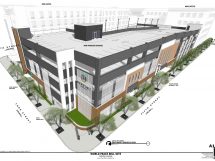By Jacqueline Pitts, The Bottom Line
Presentations in front of the Public Pension Oversight Board Monday showed the pension problem continuing to grow as legislators get set to return to Frankfort in January to craft the next two-year state budget and tackle pension reforms.
An update on the pension systems given by Legislative Research Commission (LRC) staff showed the funding levels for the Kentucky Retirement System (KRS) falling from 16% to 13.1% and the unfunded liability of the system increasing to $13.5 billion during 2017 due to changes in the assumed rate of return adopted by the KRS Board.
Because of the changes, LRC staff explained the state will be looking at an increased funding need of around $220 million from the General Fund in 2019 alone, which will consume almost the entire projected growth of the General Fund in the next year.
In the next two-year budget, the employer contribution—the amount paid into the system by the state—will increase to 83.5% of salary. This contribution amount will allow KRS to fund the system without having to cash in assets.
As for the Kentucky Teachers’ Retirement System (KTRS), the system’s funding level increased in 2017 from 54.6% to 56.4%. The additional state contribution to KTRS made in the 2016 session of the General Assembly has resulted in the system’s total assets growing by $2.167 billion.
However, they will also require additional funding in the next two-year budget. KTRS employer contribution in the next budget, according to the presentation, will require $1.10 billion in total General Fund appropriation.
Additionally, LRC staff discussed the idea of moving to level-dollar funding for the systems, a proposal presented by the PFM report and in the first draft of a pension reform bill presented by the governor. If the state does adopt level-dollar funding, the state will need to find $392 million additional funds to put toward KTRS each year.
The Public Pension Oversight Board (PPOB) adopted seven recommendations, many of which were adopted by the group in 2016 but not passed in 2017 including housekeeping bills for the pension systems, monitoring the progress of new pension transparency laws, and others.
However, because the legislature is still working on a plan dealing with more significant reforms, PPOB co-chair Sen. Joe Bowen said the work of the group in 2017 served as a way to lay the groundwork for reforms faced in the 2017 session.
The PPOB offered no insight into when a new pension reform plan might be available to the public.





















Add Comment